Game Dev Tycoon Review
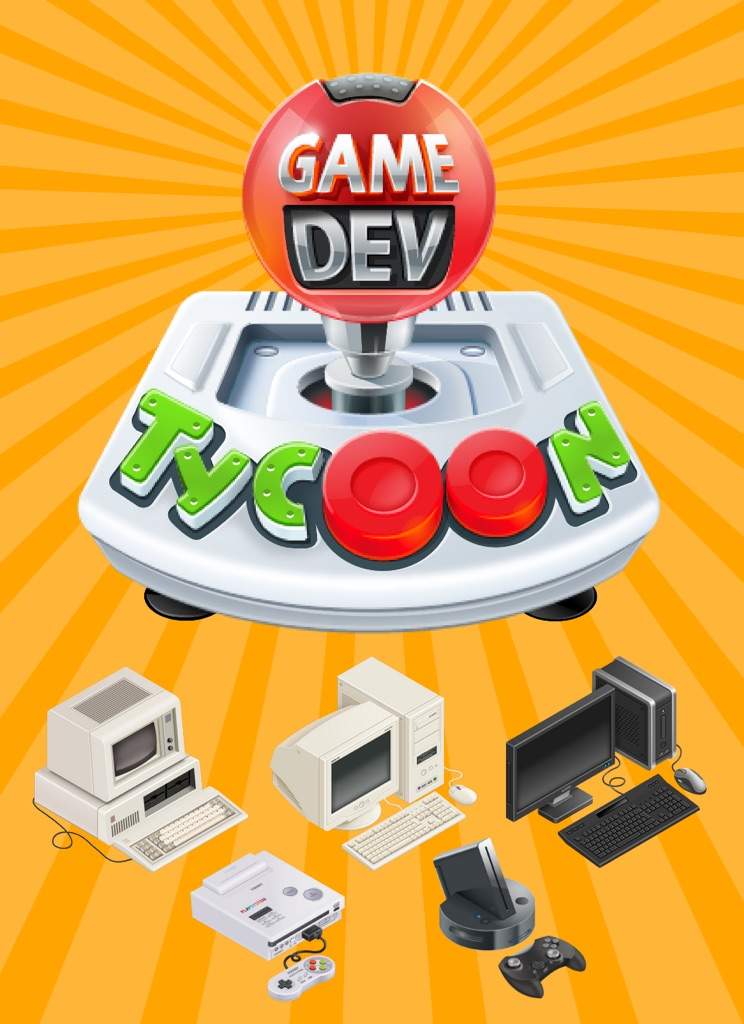
Developer: Greenhart Games
Publisher: Greenhart Games
Format: PC
Released: December 10, 2012
I know it's not that retro, but it's not recent either, but that's the term I'll use for any reviews that are earlier than the current year.
Game Dev Tycoon is a fun experience that I am pleasantly surprised with. I had not heard about this game until I found a stream that TotalBiscuit did where he played the game rather well. It intrigued me greatly, and I couldn't believe I hadn't heard about it sooner. The game did not disappoint.
The game isn't huge, I must admit, so I remain unsure of how long this review will be actually. Regardless, I just want to express what I've experienced in my time playing.
You get to choose between a male and female player model at the beginning of the game, with minimal customization options available. Not really too special besides simple clothing changes or changes to hair and skin color. You never see your character’s face at all anyway, so this doesn't matter too much. Despite that, the game does indeed have faces for their player models, that you'll likely see when you hire more people to your business.
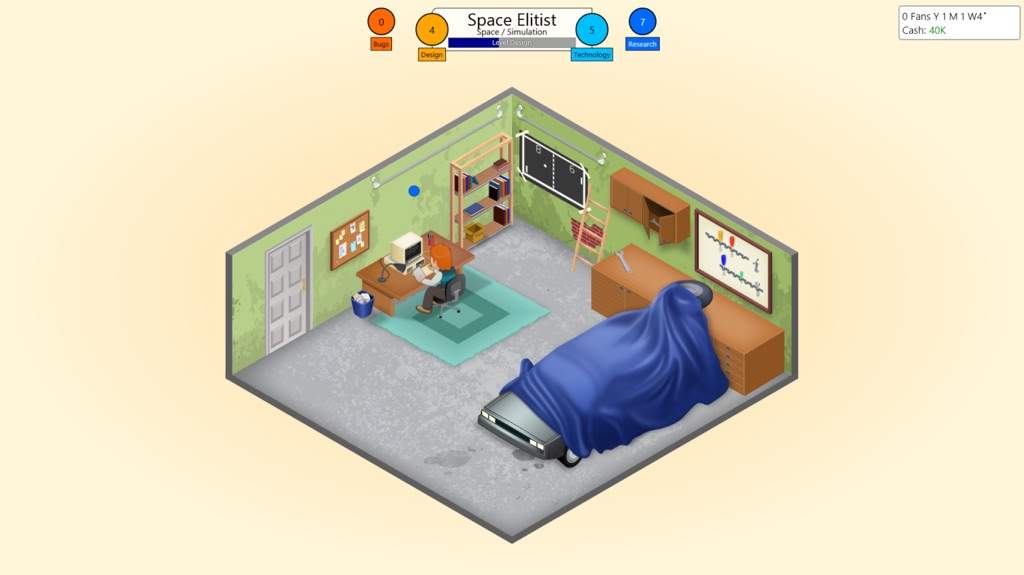
You're placed into an 80s garage with a computer desk, complete with your own cool Pong poster taped to the wall. Very humble beginnings, I must say. Making games from your garage. I found my first disappointment with the game straight away, to be totally honest. First off, the game makes all of these parody companies based on different console companies that we’re familiar with - like “Vonny” for Sony, or “Ninvento” for Nintendo. (For the purposes of this review, I'll use the real company names.) Why can't I develop for the Atari parody then? Or the Intellivision? You made a game tycoon in the 80s without Atari? That's just crazy to me. So your options at the start are pretty barren - you're basically stuck between the PC or Commodore 64. True to form, the Commodore will hold most of the marketshare before it’s inevitable downward spiral into failure. I capitalized on the Commodore for the most part early on, eventually moving on to the NES once it became available.
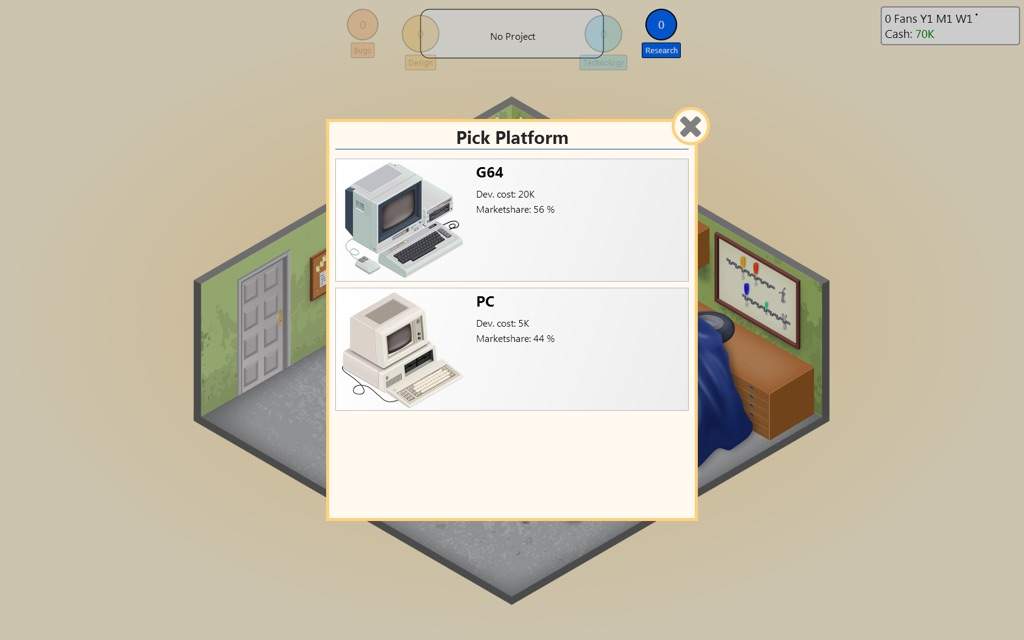
The game making process is not too complicated, but it's still engaging enough to be entertaining. You're given a set of topics to choose from after naming your game, which can vary from “Sci-Fi” to “Fashion.” Then you pick your genre, a selection from Action, Adventure, RPG, Simulation, or Strategy. Later on, Casual becomes another genre for you to use. You'll also be able to mix and match these genres as well. This gives a lot of replayability to the game as a whole in my opinion. Your company could specialize in a certain genre, or perhaps a certain topic. The choice is yours. My main company became successful from Airplane/Simulation games for the most part, combined with the innovation of the Virtual Pet genre. We made millions.
Over time, you'll improve and receive the ability to do contract work, which is basically quick work you can do for quick money should the need arise. If your character fails to complete the contract in the allotted time, they will be hit with a fine instead. My mistake in my first playthrough was to do a bunch of these, which led me to receive hefty fines for my character’s slow working skills. Although I eventually fought out of the red with game releases, it really was difficult. The game is very punishing once you get into the negative amount of money in your bank account, since money is needed in order to make games. You're basically stuck if you don't get a hit game while in the red. The lurking danger of repaying the game’s emergency bailout also hangs over you. When you do end up bankrupt, though, a parody of Electronic Arts buys your company over, which I found hilarious.
You'll eventually get audience choices as well, which allows you to make games projected towards certain age groups. This plays a factor in tune with the genres, topics and consoles. For example - a mature government simulator would work well on PC, but would do horrible on GameBoy. A young Virtual Pet RPG (Pokemon) would work wonders on GameBoy, though, while failing to do well on the Xbox. It gives a sense of challenge to figuring out what would work on certain consoles without becoming too repetitive. After making a successful Virtual Pet RPG on GameBoy, my company made an airplane simulator on PC rated for everyone, which allowed me to move out of my garage from how much money I made. You can't live like Tai Lopez for long. It's best to move to a new office when you're ready so you can reap the benefits of hiring staff.
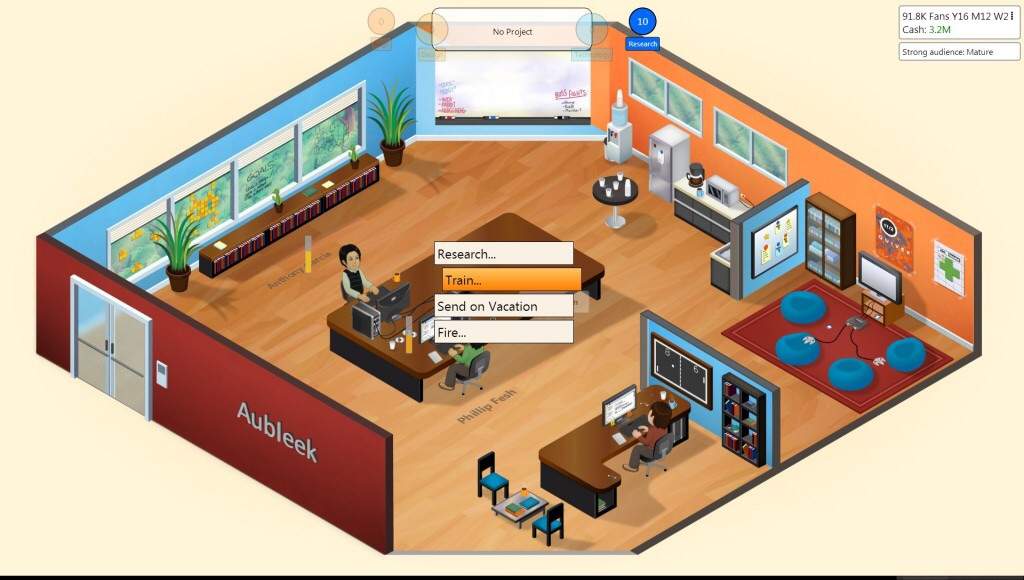
As the years went on, I began wishing that I had more consoles to choose from. Sure, the Genesis and SNES were the main ones out there, but I wanted some more minor options. One point that I heard TotalBiscuit bring up, actually, was perhaps an option for branching alternate history. It'd be cool to see if the Commodore never fizzled out, or maybe what would've happened if Sega never got out of hardware. Maybe that'd bring the opportunity for new, fictional consoles only seen in those branching storylines.
The game engines also play a part in game development. Over time, you'll develop game engines with added features that you've researched in order to further enhance your games. These can be things as simple as save points or stereo sound to more complicated things, like branching storylines or AI companions. Your company’s fans will sometimes request that you release your older engines, to which you can choose between releasing it for free or selling it. The choice is between money or fans, really, and I usually choose to give the engine away for free.
One small thing I had a problem with was the fact that the years are counted in the format of “Y1” instead of “1980.” It sort of bothered me when I got far in the game, since I really wanted to know how far into the future I was exactly. I must be in about 2040 by now... Just a minor nuisance I had, personally.
There's some other nice references hidden in the game too. There's an achievement for hiring “someone famous” to your company. Simply put, you'll find staff members with parody names of real developers that are known in real life. I wanted to hire someone like Miyamoto to my company, but instead I got stuck with Phil Fish, Tim Schafer, and Sid Meier. Oh well. Miyamoto is in the game, by the way. Just gotta get lucky. I do wish there were more famous people, though. Guys like Keiji Inafune or Gabe Newell would've been cool to hire on as staff. Looking at the wiki list, it seems like there could've been room for way more famous developers.
As you go far into the future, you'll be introduced to newer consoles. This is where it'd be handy to utilize the game’s modding system. The game is very mod-friendly via Steam Workshop, which allows you to spice up your experience with more options like an entire new generation of consoles, more consoles in previous generations (like the NeoGeo), and research for AAA games. This really becomes useful, especially since the game essentially stops producing new consoles at a certain point. For me, the market was barren besides the Playstation5, Xbox NeXt and PC. Most of my games went to PC at that point, which was currently in the lead in my game.
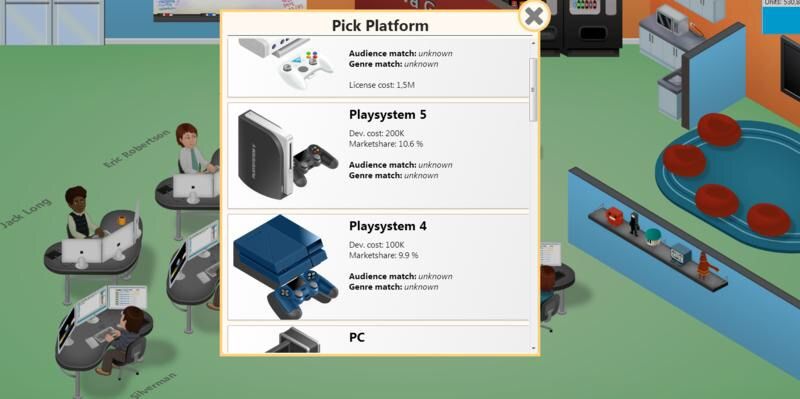
By this time, I had a ton of money in the bank from a variety of hits. I took to remaking past games starting from 1980 and onwards. My remake of Ultima really took off with PC, PS5 and NeXt players. When you have loads of money saved up, it's probably time to invest it. The game opens up into two extra tabs of your office eventually - one for R&D, the other being a lab.
R&D allows you to research a variety of things to enhance your company further. My company, for example, researched an online marketplace (which I assumed is like Origin or Uplay) to make added income every month. Some of the mods I found add extra research options to this section as well, which is pretty awesome on the game’s part. It presents itself as something highly moddable for its fans. The other tab available is for the lab, which is mainly for developing your own console. I released the SS 2600 to the market after putting a load of money into its development to make sure it did well. Developing consoles feels like something you should do after accomplishing a lot in the game and earning plenty of money, which I found really fitting. The culmination of the long journey from the 80s feels complete when your own console is on the market.
My console dominated the marketshare right away. I guess I released it in a time where a new console hadn't been released in years! Currently, it sits at over 100M units sold, which is pretty crazy, but I guess that's how starved the world was for a new console after so long. The game does a nice job at making sure you micromanage things for your new console, R&D, and game development. I feel like the console making system could be fleshed out a bit more, but overall it's still really cool.
Wrapping up, I don't think many bugs will be encountered during the game. They do warn you to use mods at your own risk, of course. Many of the mods conflict with one another, since they attempt to add things that overlap a majority of the time. Are mods the reason why I can't research the topic of RTS? I have every topic researched except for RTS, yet the game won't let me research. I assume it's glitched out at this point, since I researched everything else thus far. Just let me make an RTS, please? I want to remake Command & Conquer is all! I won't screw it up like EA did! Other than that, it does seem technically sound for the most part.
Overall, I have to say that Game Dev Tycoon is utterly addicting and adorable. Anything that is wrong with the game is only a minor nuisance at worst, and doesn't cause the game detriment whatsoever - a sign of a game that was done well. It executed it's intended purpose very well. If you want a game that you can just lose hours to, then Game Dev Tycoon is totally worth your time.
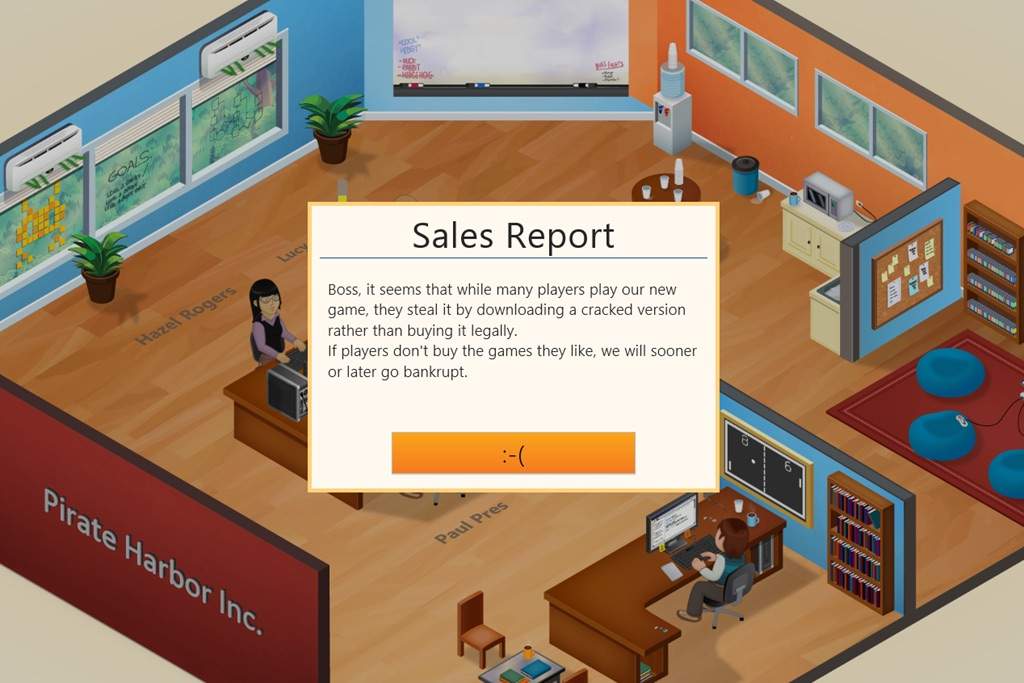
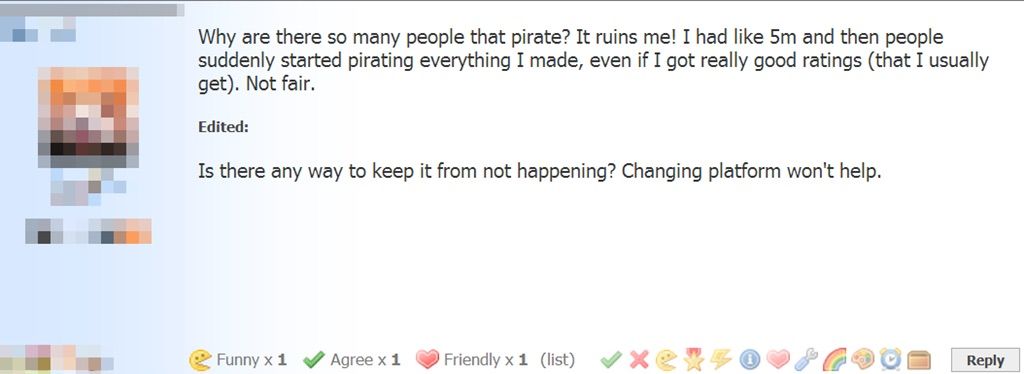
Before you possibly go buy it, please actually buy the game. Don't pirate the game. Game Dev Tycoon has a genius DRM implemented that combats any would-be pirates. Pirates of the game will play identical to the regular version, for the most part, barring one fatal flaw. Pirated versions of the game will find that their company’s games will be pirated themselves, causing a huge loss in profits for your company and eventually leading you to go bankrupt. This is not a joke. This actually happens if you pirated the game. It happens every time, too. I think the idea is genius! I wish more games would do this to combat pirates. Well, good games, at least. Support the developers, guys and gals. This game is worth the ten bucks.
9/10
Excellent
No comments:
Post a Comment